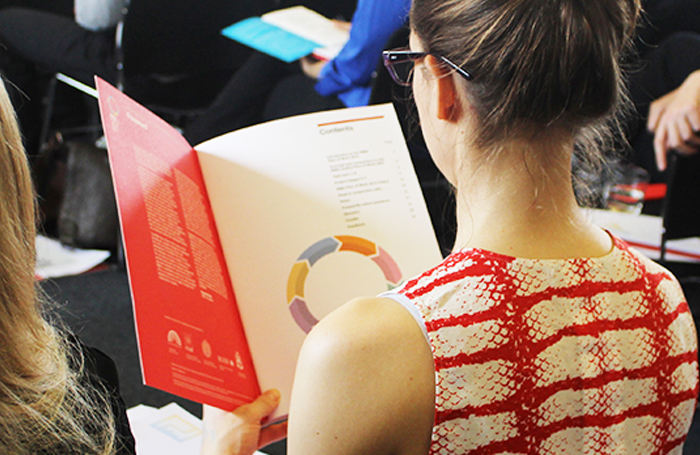Continuing professional development (CPD) helps architects stay competent, professional, capable and resilient. It provides new skills and can strengthen your ability to cope with changes in the business environment.
So it is well worth practices taking a strategic, business-minded approach to CPD, directing the staff’s CPD efforts so that they relate directly to projects the practice is doing, or would like to do in future.
That is the message from Abi Van Hoorebeek, who teaches professional practice to students. She cautions against a passive learning approach – simply doing what is most readily available – and urges her students to decide what CPD they need for their career and then actively get educated about it.

"Practices could be taking this on, listening more to staff and what they want to learn about," she points out, "then organising seminars or presentations that address these needs directly."
Van Hoorebeek is a partner in the practice Studio Van Hoorebeek and sits on the RIBA CPD Steering Group. She likes the clarity of RIBA-approved CPD: it sets out exactly what you are about to learn at the beginning, and reviews what you have just learnt at the end.
As self-confessed "right out in the sticks" practitioners, Peter Kent and his three chartered architect colleagues at PKA Architects have been making great use recently of the RIBA City CPD Club events in Salisbury.
There are ten of these events each year in five locations around the country, which together provide the minimum CPD requirement of two hours a year for each of the RIBA’s ten core curriculum topics.
Additionally, PKA Architects invites presentations from product manufacturers, usually drawn from the RIBA-approved list, and has found no problems getting speakers to make the trip to a small practice on the outskirts of Devizes. The four architects take it in turns to choose a topic.
Practices with a more specialist focus might require CPD of a more specific technical kind. Alex Whitcroft, whose practice bere:architects is devoted to high-performance, sustainable buildings and Passivhaus homes, says he and his colleagues go to conferences quite regularly; energy industry events in particular.
"The more general CPD on energy performance, for instance, is not quite as useful for us. The practice has several certified Passivhaus designers, so we tend to be more interested in getting an in-depth look at a built project, whether that is via a visit or a presentation," Whitcroft explains.
With the specific needs of their practice in mind, the practice will invite presentations from product and systems manufacturers whose products or systems they might be researching for use on a forthcoming project.
"Lots of manufacturers provide this service now," Whitcroft adds. "They recognise that it is much better to get people’s full attention for an hour or so than rely on a brochure."
Lisa Raynes runs the innovative franchise-modelled Pride Road practice. Everyone from their three offices comes together for a development day every two months to discuss any issues, and then spends a half-day on CPD.
They have a technical associate who brings them up-to-date on IT and systems, and will often bring in someone to give a talk, such as a structural engineer.
"We are all very conscientious; I think architects are in general," she suggests. "They have signed up to the RIBA’s Code of Conduct and they want to develop their knowledge with CPD. It’s one of the key things that sets Chartered Architects apart from 'architectural designers' and the like."
Raynes has been testing the RIBA’s completely revised CPD Recording Platform, with which members can easily add, edit and download all CPD activities undertaken since January 2019. The new platform is accessed through the My Account area of the RIBA website.
Not only is the new platform more intuitive and easier to use, but Raynes welcomes the way in which it highlights any gaps in a member’s CPD record.
"I think it will actually encourage take-up of CPD because it highlights areas that you are light on. It will offer the capability of being integrated into larger systems in the future, making it far easier to pull out information on who has done what."
Thanks to Abi Van Hoorebeek, Partner, Studio Van Hoorebeek; Peter Kent, Practice Director, PKA Architects; Alex Whitcroft, Director, bere:architects; Lisa Raynes, Founder, Pride Road.
Text by Neal Morris. This is a Professional Feature edited by the RIBA Practice team. Send us your feedback and ideas.
RIBA Core Curriculum Topic: Business, clients and services.
As part of the flexible RIBA CPD programme, Professional Features count as microlearning. See further information on the updated RIBA CPD Core Curriculum and on fulfilling your CPD requirements as an RIBA Chartered Member.
Posted on 21 February 2019.









